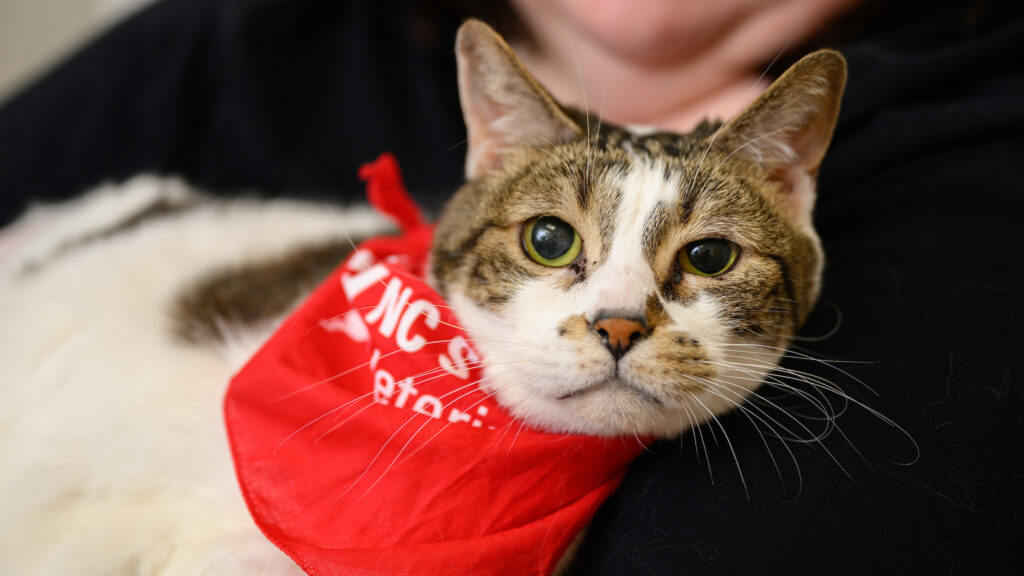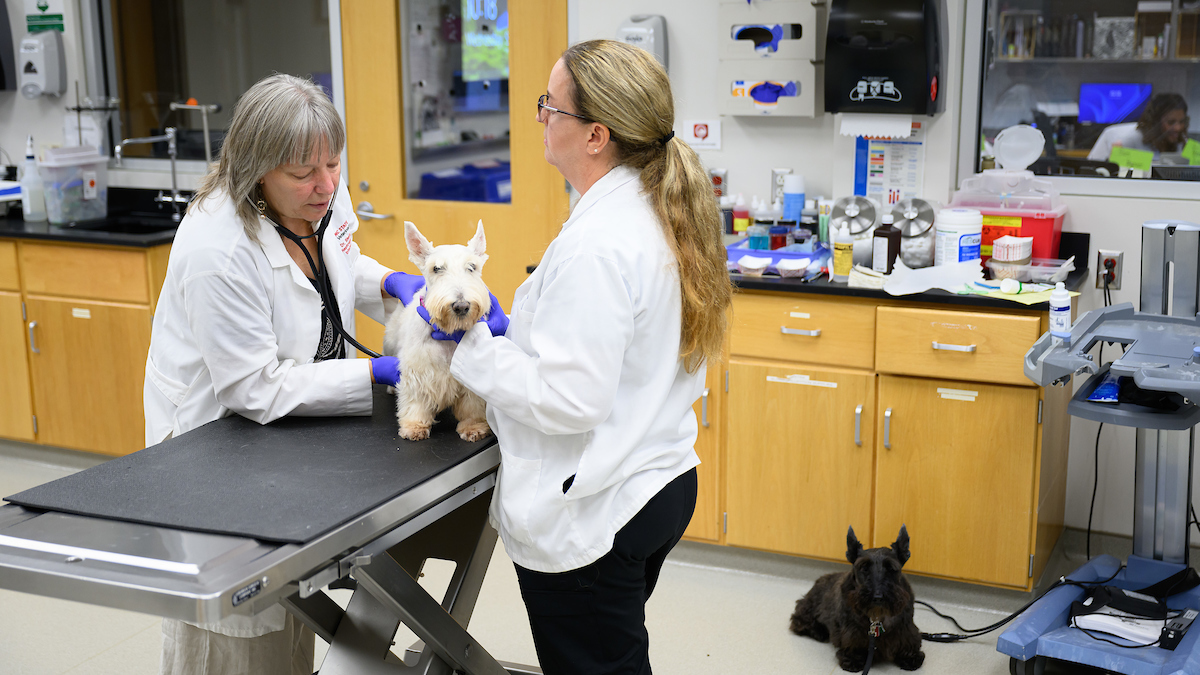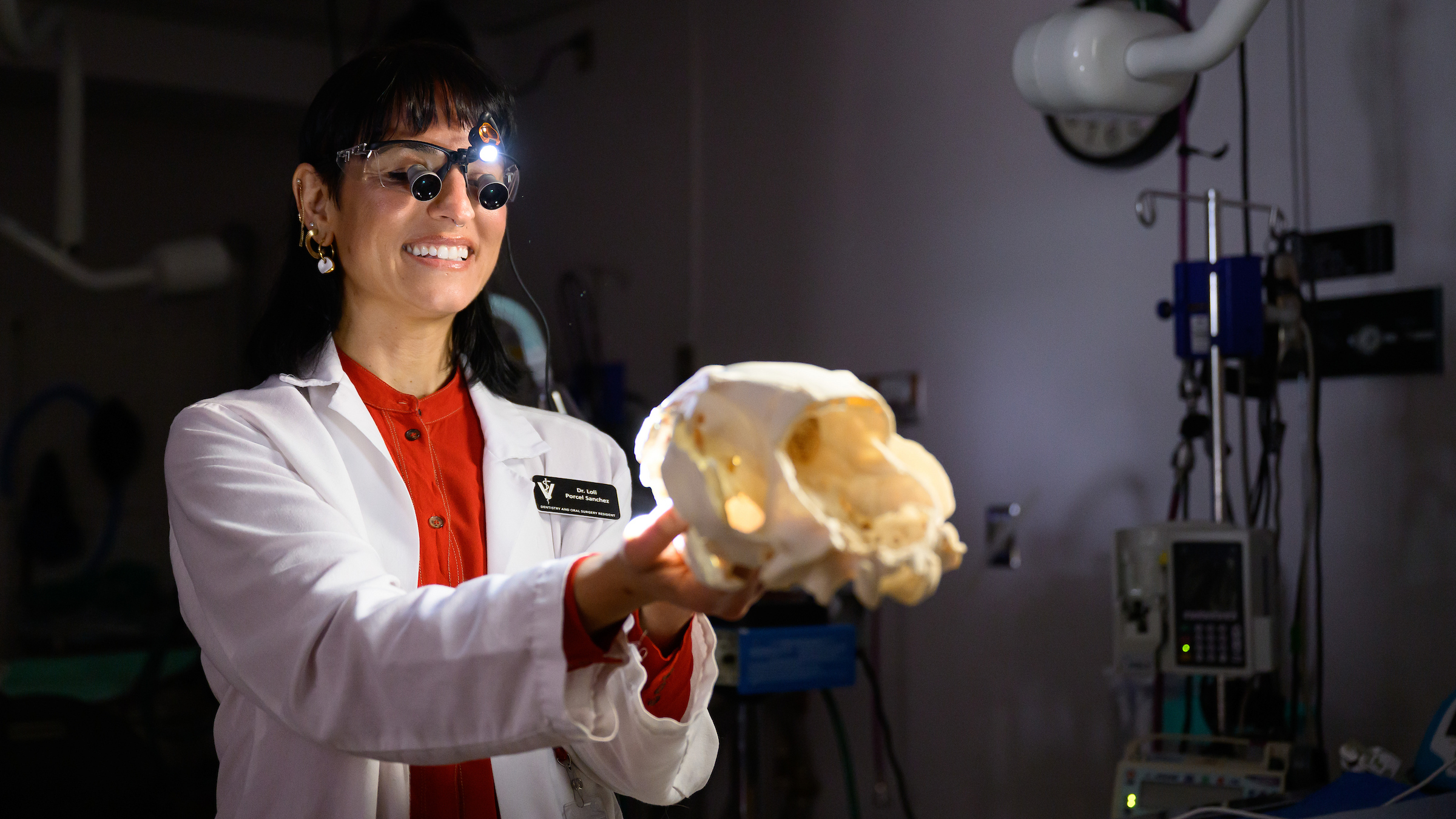Dule’s Cancer Care at NC State Keeps Owner Duly Impressed
Empathetic care at NC State and funding from Petco Love and the Blue Buffalo Pet Cancer Treatment Fund have made a 13-year-old tabby’s five-year journey with an injection-site sarcoma easier on the feline’s family.
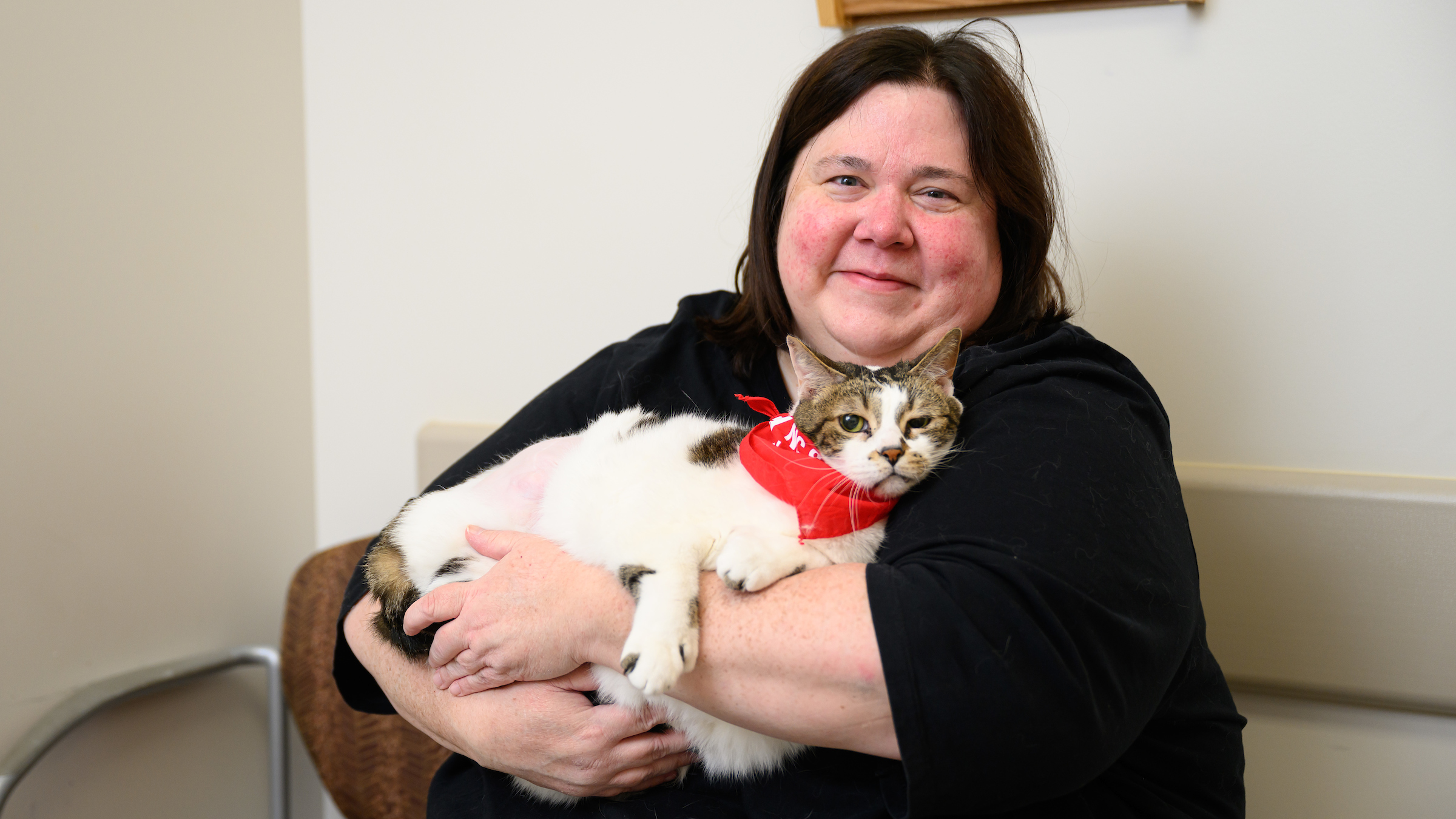
As a kitten, Dule Whitler was a tornado. He flung himself into lamps, knocked decorations off his owner’s mantel and destroyed antique furniture, including a marble tabletop.
But all was forgiven as soon as his owner, Margaret Whitler, would scoop him up. Dule, pronounced like “duly,” would melt into her arms, purring like an engine and kneading his polydactyl six-toed paws.
The 13-year-old, 18-pound tabby lost his taste for destruction as weight gain kept him grounded, though his strong personality never changed. Now, the same persistence and energy that previously propelled him into furniture have pushed him through five years of treatment for an injection-site sarcoma, an uncommon cancerous tumor.
The NC State Veterinary Hospital has taken care of Dule and Whitler for nearly two years of that journey. When Dule was referred to the hospital’s radiation oncology service in early 2022, vets estimated he had just months to live, Whitler says.
NC State veterinarians kept Dule comfortable during several rounds of radiation and connected Whitler to a grant from Petco Love and the Blue Buffalo Pet Cancer Treatment Fund that offset his medical costs.
And though Dule’s vet team recently determined his cancer was progressing in spite of radiation, Whitler is grateful for the team’s compassionate and encouraging care through a challenging process.
“I cannot say enough good things about NC State, and I will praise them to the moon because they gave me two extra years, good years, with Dule,” Whitler says. “And it wasn’t like I had him for two years but he was sick or stressed out. They made that so easy and comfortable for him, and the Petco funding was just icing on top of the cake.”
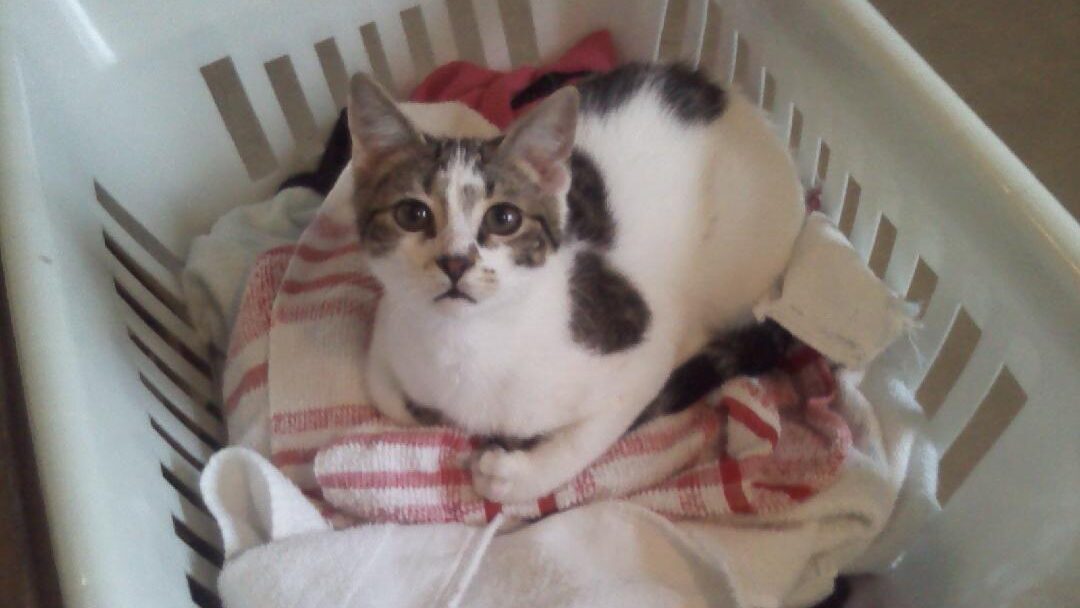
‘I felt like they really cared’
Whitler first noticed a knot-like lump on Dule’s back right haunch in 2018. It was in the same spot as a recent rabies vaccine.
Her local vet in Greensboro aspirated the mass but saw no signs of cancer, Whitler says. It was only after the tumor was removed and biopsied that caregivers discovered it was cancerous.
“Injection-site sarcomas are devastating tumors that are uncommon but can affect cats of any age,” says Dr. Tracy Gieger, an NC State clinical professor of radiation oncology. “They are most often associated with vaccines, but can be associated with other types of injections and even microchips.”
According to the American Veterinary Medical Association, just one injection-site sarcoma is reported per upwards of every 10,000 vaccinations. The risk of developing this cancer is much lower than the risks posed by contracting vaccine-preventable diseases.
Gieger says experts advise veterinarians to vaccinate cats lower on their limbs, between their knee and foot, to make treatment easier if a tumor develops. The NC State Veterinary Hospital recommends owners talk with their veterinarians about any vaccination concerns.
In Greensboro, Dule’s oncologist treated him for the cancer but warned Whitler that it had a high recurrence rate.
About three years passed before Whitler noticed another growth. She was living in the Triangle by then, and her local vet referred her to NC State.
Dule started his first of three rounds of radiation here in June 2022. Whitler says the radiation oncology team was mindful of his comfort during the entire process.
“All of the vet techs were great, there was good communication and the doctors were amazing,” she says. “Each radiation round I dealt with a different veterinarian, and they’ve all been wonderful — very empathetic, very honest. I felt like they really cared about Dule.”
Gieger says NC State’s radiation oncology service supports pets and their owners by providing a thorough consultation upon referral, ensuring consistent care and communication throughout treatment and outlining a plan for continued care after pets are discharged.
In situations like Dule’s, Petco’s contributions allow pet owners and veterinarians to explore broader treatment options, she says.
“The Petco funds are incredibly helpful in many cases, especially for pet owners who have already spent most of their resources to identify and stage the pet’s cancer prior to getting to the treatment stage,” Gieger says. “It is also helpful in cases where we feel that a longer, or more definitive-intent, treatment protocol is more likely to result in a longer quantity or quality of life for the pet, but the added cost for that is too high for the owner.”
Former radiation oncology resident Dr. Jason Strasberg connected Whitler to the grant early in Dule’s treatment. Whitler says that assistance made a big difference during a stressful time.
“You want your focus to be on your pet, and you’re worried about their treatment — ‘Is it going to go well, and are they going to be comfortable?’” Whitler says. “To not have to focus on the money and be able to focus on them is huge. And I will not forget it.”

Going the distance
Even when the NC State team told her that Dule’s tumor was resisting treatment, Whitler could tell they were still invested in his health and her well-being.
She says she has rarely experienced that depth of thoughtfulness from other caregivers.
“It was hard to hear, but I was grateful for their honesty,” Whitler says. “One of the vets told me, ‘Just because we’re not moving forward with radiation doesn’t mean we’re not here for you. You call us, and we’ll walk through this with you.’ They don’t make you feel alone in this at all, and that’s been huge, because you’re scared to death. They did absolutely everything in their power to make this process as easy and painless as possible.”
Robin Holt, Whitler’s best friend, has supported Whitler through Dule’s treatment, including by taking Dule to appointments. A pet owner who has been through similar situations herself, she says she has been blown away by NC State’s approach.
“Through this whole thing, his quality of life has been amazing,” Holt says. “He’s never had a sick day. He hasn’t missed a beat. He never even lost his appetite, and he’s been playing. You better believe if something ever happens to one of my cats, I will be at NC State.”
At home, Whitler is savoring every day with Dule and making every moment count.
“Right now, he’s happy and comfortable,” she says. “I’m grateful for that.”
